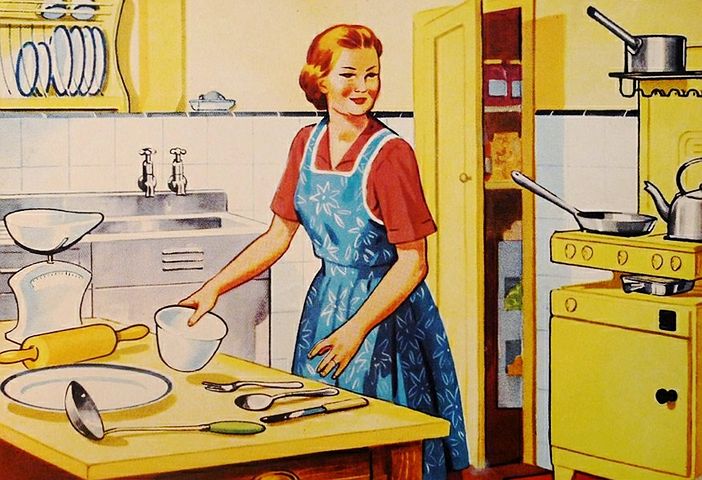|
Wisdom is the eye which sees things as they are, the application that severs conditioned existence at its root. - Lama Tsongkhapa
"These days, I like to think of consuming the news like consuming food. Just as we ought to be mindful about what, how much, and at what times of day we eat food, we can be mindful about which news sources we turn to, and when and how often we turn to them. We can establish a media diet based on clear intentions—for instance, to stay up to date . . . to inform ourselves — instead of overeating or getting stuck in a “filter bubble,” or at the whims of pre-determined algorithms. We must also aim to seek out news sources that are wholesome in content, committed to ethical journalistic standards and fact-checking." - Jihii Jolly
 (public domain image from www.pixabay.com) In his book, Yoga For Physical Fitness, published in the early 1960s, American Yoga pioneer teacher Richard Hittleman offers this amazing but perhaps dated insight: "The sedentary worker knows that he is deficient in the exercise department because he is able to feel the results of his inactivity. The housewife is the supreme example of the person who believes she is getting all the exercise she needs - indeed, her complaint is that she usually geets a lot more than she needs. But the fact is that as a group, housewives are seriously deficient in true exercising (often more so than the sedentary workers because of the nature of housework). The housewife confuses the amount of activity with the type of activity. She fails to distinguish between just plain activity (housework) and the manipulation of the body that is true exercise. If the activities of housework (cleaning, shopping, child care and so forth) constituted true exercise, then we would not see the housewife tense, irritable, overweight, flabby, depressed and complaining of every type of soreness and pain." This is an issue not only for the "housewife" but for many others who are engaged in physical activity because of their work. Just look at the laborers who work in your home or property: plumbers, electricians, gardeners, roofers. Though they're doing hard physical labor, many of them are over weight, in poor physical shape and all of them talk about pain and stiffness in their bodies. So, Hittleman makes a vitally important point saying it's not just any physical activity that leads to health but the proper "manipulation of the body." When even my dearest friend, whom I had helped, unexpectedly turns against me, may I vow to view him as a great treasure, difficult to find. - Geshe Langri Thangpa
"Human beings have a moral responsibility to be as happy as they can be* and this applies particularly to our interactions with our spo0uses and children, the people with whom we spend the most time and the people who are most likely to feel responsible for our bad moods. If our moodiness is due to a chemical imbalance, and is therefore beyond our control, we have a moral obligation to those who live with us to seek out the drug an/or psychological treatments that can improve our emotional balance." - Rabbi Joseph Telushkin
(* Rabbi adds: "I emphasize the words 'as they can be" because some people are naturally happier, calmer and more easygoing that others. There is not a single standard of happiness to which all people should aspire. But if we have a tendency to focus on problems, and to be often anxious, moody and pessimistic, then we are obligated for the sake of others to rein in these tendencies.") Receive every person with a cheerful expression. - Rabbi Shammai
(application: That this advice is expressed indicates this does not come naturally to many people) Suffering can motivate us to transform ourselves like nothing else. It forces us to be humble and to ask for help. This openness is a fertile ground for healing. - Sister Ocean
Our body is a small universe, a microcosm, and it tends to reflect the great universe, the macrocosm. - Sheng Yen
"The chance of a practitioner getting the Buddha mind depends on his developing a 'great ball of doubt' which drives him to diligent and energetic practice. During retreat the master tries to bring each student to this state of great doubt, for only then is it possible to create an opening through which the Buddha mind can enter. The master will use different methods to do this, according to the student's state of mind, personality and accomplishment." - Master Sheng Yen
|
Victor M. Parachin ...is aVedic educator, yoga instructor, Buddhist meditation teacher and author of a dozen books. Buy his books at amazon or your local bookstore. Archives
July 2024
Categories |
 RSS Feed
RSS Feed